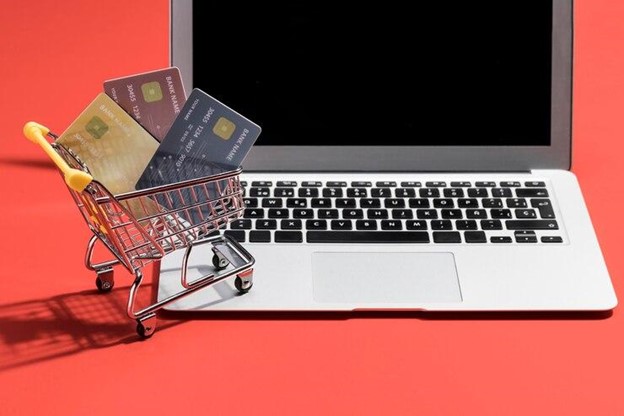Boosting SMB Revenue with Efficient Payment Processing

Are you all set for SMB Day celebrations on June 27? After all, it’s a great opportunity to share your own challenges and accomplishments on national and international platforms as well as learn from other enterprises and entrepreneurs. Moreover, the Middle East has been witnessing a surge in small and medium businesses (SMBs) for quite some time now and their contribution to the region’s economy is hard to ignore. For instance, a couple of years back, it was observed that SMBs accounted for 94% of the companies operating in the UAE and their GDP contribution was pegged at over 50%. In Saudi Arabia, the number of SMBs was estimated to be more than 1.3 million towards the end of 2023.
Hence, as a part of June 27 SMB Day celebrations, you need to focus on practices, innovations, and strategies that help you survive, thrive, and boost revenue in a dynamic landscape. Adopting an efficient payment processing system is especially crucial in this regard. Let’s find out why.
How Efficient Payment Processing Improves Revenue for SMBs ?
As a modern small or medium business owner, you surely realize the importance of establishing an online presence to reel in more customers and ease the shopping experience for them irrespective of the time of day or location. And since payment processing is an integral part of converting potential customers, you must have a payment gateway that does the job quickly, safely, and efficiently. Here is how such a gateway can drive revenue growth.
- Higher Acceptance Rate: This is a key advantage of using an efficient payment processing system. If you embrace a payment orchestration platform like PayTabs, it can improve the transaction acceptance rate by routing payment requests to the most appropriate processors automatically and in microseconds. In other words, when fewer transactions are declined, your revenue is greater.
- More Payment Flexibility: When it comes to payment solutions for SMBs, the more options you offer customers, the better. Ideally, they should be able to pay through debit or credit cards, digital wallets, payment links, QR codes, internet banking, and so on. This is the flexibility that comes with an efficient payment processing system, and it means fewer instances of cart abandonment and more conversions. Put simply, when customers have multiple payment modes at their disposal, they will be more likely to go through with the transaction.
- Support for Multiple Currencies: Multi-currency support is one of the top SMB payment innovations that can help you do business with customers outside the Middle East too. You won’t have to deal with pesky exchange calculations as the gateway will take care of it. Also, when customers in foreign countries realize they can pay in their local currencies, they will feel more comfortable with your business. Their confidence and trust will grow, leading to bigger order volumes and repeat purchases.
- Easy Localization: A payment gateway that modifies the checkout experience based on different geographies is one of the best SMB financial tools you can use in the age of globalization. In other words, for every country, you can provide local payment methods to ensure a sense of familiarity in shoppers. The language and interface of your e-store can also be tweaked accordingly to resonate with the local culture and customs.
- Data Safety: Secure payment systems for SMBs encrypt sensitive data related to the personal information of customers, transactions, payment modes used, and so on. This way, hackers cannot use the same for illegal or malicious activities. So, when you choose an efficient payment processing platform like PayTabs, you can offer a completely secure checkout experience with robust authentication checks to shoppers and earn their trust.
- Fast Transactions and Settlements: Using the right payment gateway means every transaction will happen speedily and save precious time for customers. This will not only make a positive impression on them, but also encourage them to buy more from you in the future. Moreover, you will receive funds in your account on time too, which means you can maintain a healthy cash flow. This is essential for paying your employees and vendors without delays and running all operations smoothly.
- Actionable Insights: The best payment processing systems for SMBs enable you to analyze data and generate different kinds of reports to help you take better decisions in the future. Backed by data-powered insights, you can tweak your existing strategies to bring in more sales and revenue over time.
- Increased Customer Satisfaction: Offering shoppers a fast, efficient, and secure payment processing system can boost their overall experience and encourage them to spread the word among others. By offering multiple modes of payment, accepting different currencies, and localizing the checkout process, you can expand your customer base, reach out to previously untapped demographics, and venture into new markets. Gradually, improved customer satisfaction will lead to increased loyalty, more frequent purchases, and hence, greater revenue.
Round Off SMB Day Celebrations with More Earnings
There can be nothing smarter than improving your revenue through smart payment processing to add a special spark to June 27 SMB Day celebrations. However, with so many options available in payment gateways and orchestration platforms, it can be challenging to pick one that aligns with your business’s specific needs. So, research thoroughly and compare multiple providers and their service fees before making a decision. Find out if they can scale or modify their offerings in line with your business’s growth or direction. And make sure to test their tools or go for a demo session before you partner up for good.




